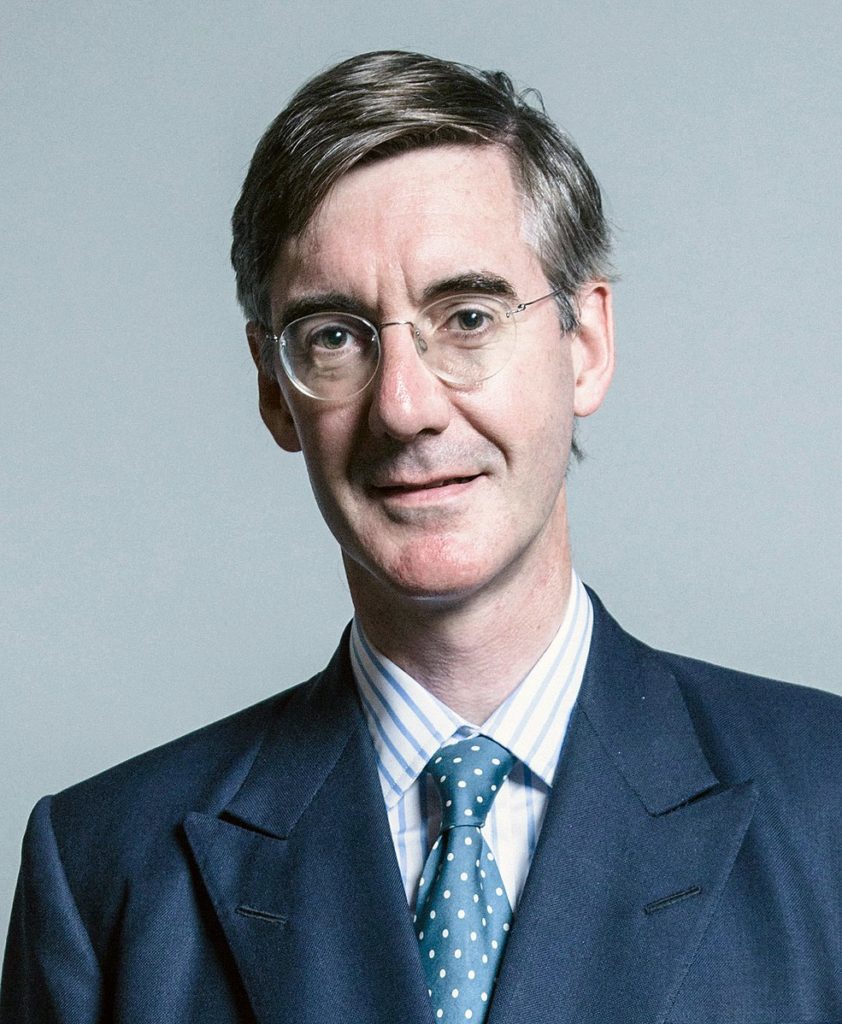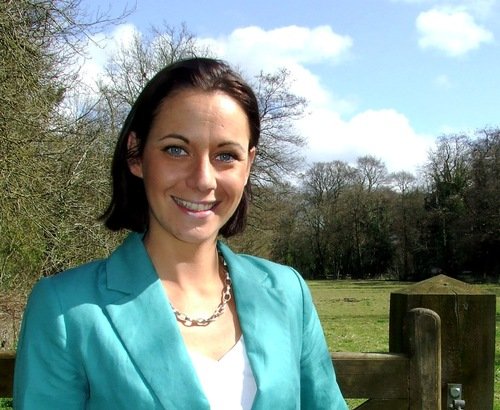Credentials
- Read History at Trinity College, Oxford, graduating in 1991.1“Who is Jacob Rees-Mogg? He’s the North East Somerset MP who has Moggmentum behind him and they want him to be Prime Minister,” Somerset Live, October 5, 2017. Archived December 19, 2018. Archive URL: https://archive.fo/Nh5vI
- Attended Eton College.2“Who is Jacob Rees-Mogg? He’s the North East Somerset MP who has Moggmentum behind him and they want him to be Prime Minister,” Someset Live, October 5, 2017. Archived December 19, 2018. Archive URL: https://archive.fo/Nh5vI
Background
Jacob Rees-Mogg was the Conservative MP for North Somerset3GOV.UK. “Sir Jacob Rees-Mogg,” GOV.UK. Archived July 5, 2024. Archive URL: https://archive.is/OGA7L until losing his seat in the July 2024 general election.4Eleni Courea and Kiran Stacey. “Penny Mordaunt and Grant Shapps among slew of Tory cabinet ministers unseated,” The Guardian, July 5, 2024. Archived July 5, 2024. Archive URL: https://archive.is/XmnKL
Rees-Mogg was appointed Secretary of State for Business, Energy and Industrial Strategy on September 6, 2022.5GOV.UK. “The Rt Hon Jacob Rees-Mogg MP,” GOV.UK, September 6, 2022. Archived September 7, 2022. Archive URL: https://archive.ph/NY52f Rees-Mogg stepped down from the role on October 25, 2022.6Charlie Moloney. “Jacob Rees-Mogg quits with handwritten letter dated ‘St Crispin’s Day’,” The Guardian, October 25, 2022. Archived November 5, 2022. Archive URL: https://archive.ph/CWwma
Rees-Mogg joined GB News as the presenter of his own talk show in January 2023.7Paul Glynn. “Jacob Rees-Mogg to host GB News show,” BBC News, January 26, 2023. Archived December 18, 2023. Archive URL: https://archive.ph/41TxS According to February 2024 reporting from the Guardian, Rees-Mogg has been paid the most out of GB News presenters who are also Conservative MPs, earning “£325,000 in the last year”, which works out to “slightly more than £29,000 a month as a presenter for 40 hours of work, or £729 an hour”.8Peter Walker. “GB News has paid more than £660,000 to Tory MPs since its launch,” The Guardian, February 28, 2024. Archived February 28, 2024. Archive URL: https://archive.ph/5a9Mm
Previously, Rees-Mogg was the Leader of the House of Commons from July 2019 to February 2022.9Mat Hope, Richard Collett-White. “Is Boris Johnson’s Cabinet the Most Anti-Climate Action Ever?” DeSmog, July 25, 2019. In February 2022, he was named as the minister for Brexit opportunities and government efficiency in a cabinet reshuffle.10Peter Walker and Heather Stewart. “Rees-Mogg becomes minister for Brexit opportunities in Boris Johnson reshuffle,” The Guardian, February 8, 2022. Archived February 9, 2022. Archive URL: https://archive.ph/GxBLo In May 2017, he was voted the party grassroots’ favourite to succeed Theresa May as Prime Minister – a suggestion he has repeatedly dismissed.11Alessandra Rizzo. “Jacob Rees-Mogg tops Conservative poll on next party leader,” Sky News, September 5, 2017. Archived December 19, 2018. Archive URL: https://archive.fo/8bMio 12“Rees-Mogg laughs off leadership talk,” BBC News, September 4, 2017. Archived .mp4 on file at DeSmog.
He has claimed that “climate alarmism” is responsible for high energy prices, and that it is unrealistic for scientists to project future changes to the climate because meteorologists struggle to correctly predict the weather.13Jacob Rees-Mogg. “Climate change alarmism caused our high energy prices,” The Telegraph, October 23, 2013. Archived December 19, 2018. Archive URL: https://archive.fo/kWUyS
Rees-Mogg has been a harsh critic of the government’s net zero policies, stating that “the current headlong rush to net zero risks impoverishing the nation to no global benefit on emissions”.14Nick Gutteridge. “Three-quarters of Tory voters oppose Rishi Sunak’s net zero plans for boilers and cars,” The Telegraph, January 14, 2024. Archived January 16, 2024. Archive URL: https://archive.ph/j8oX9
In 2014, he was referred to the parliamentary standards watchdog for failing to disclose interests in a company with millions of pounds invested in fossil fuel, mining, and tobacco firms when speaking in relevant debates, the Independent reported.15Jane Merrick. “Leading Tory backbench MP Jacob Rees-Mogg ‘failed to declare interests’,” Independent, December 14, 2014. Archived December 19, 2018. Archive URL: https://archive.fo/e79mH
In April 2019, Jacob Rees-Mogg’s sister Annunziata was announced as a European Parliament election candidate, standing for Nigel Farage‘s Brexit Party.16Joe Watts. “Jacob Rees-Mogg’s sister to stand for Nigel Farage’s Brexit Party in EU elections,” The Independent, April 12, 2019. Archived April 17, 2019. Archive URL: http://archive.fo/iiVh4
Rees-Mogg is well known for his socially conservative views on issues including abortion and the use of food banks.17Alexander Britton. “Tory MP Jacob Rees-Mogg defends ‘extreme’ abortion views,” Independent, September 9, 2017. Archived December 19, 2018. Archive URL: https://archive.fo/PwAqr
Stance on Climate Change
Speaking to the Telegraph about a proposed ban on new oil boilers being installed in rural homes, which would have taken effect in 2026, Rees-Mogg said that “we’ve developed these net zero policies without thinking through the cost”.18Emma Gatten and Amy Gibbons. “Heat pump lobbyists think new oil boiler ban is ‘unfair’,” The Telegraph, August 9, 2023. Archived January 16, 2024. Archive URL: https://archive.ph/wNrgR
He told the Telegraph: “It’s a really silly policy. You’re talking, in rural areas, of communities that aren’t particularly well-off being expected to pay out significant amounts of money which they’re not going to have.”
He added:
“Whatever we do makes not a jot of difference to global warming. The UK could shut down tomorrow completely and it still won’t make any difference and this idea we’re a global leader is for the birds.
“I would cancel the ban and I’d revisit the whole approach to net zero. You allow technology to work out how to let you get cleaner energy and then you let the market decide.”
March 2014
In an interview with “Chat Politics”, Rees-Mogg said he thought humanity should adapt to, rather than mitigate, climate change, and cast doubt over the effectiveness of humans’ ability to change the climate for future generations, misrepresenting a recent report from the UN‘s expert body, the IPCC.19“Jacob Rees Mogg Climate change is not worth fighting,” YouTube video uploaded by user “Anyone but the Tories,” April 28, 2017. Archived .mp4 on file at DeSmog.
“I would like my constituents to have cheap energy rather more than I would like them to have windmills,” he said.
“If you read the IPCC report on this [climate change] it said that if you were to take action now to try and stop man-made global warming, it would have no effect for hundreds or possibly a thousand years. I’m all in favour of long-term policymaking. But I think that trying to forecast the climate for a thousand years, and what little steps you make now having the ability to change it, is unrealistic. And I think the cost of it is probably unaffordable.”
“I think you need to look at ameliorating the consequences of anything that may happen, like dredging the rivers on the Somerset levels so the flood waters have some means to escape – doing that on a wider scale. Looking at the Dutch experience over hundreds of years in making land that is below sea-level prosperous agricultural land. I think you ought to take that approach rather than going back to living in the stone-age by reducing people’s use of energy.”
“I think we have to be realistic about what we can change, the timescale over which we can change it, and actually I think mankind is highly adaptable, and we need to look at more adaptability rather than changes in behaviour.”
October 23, 2013
Writing in the Telegraph, Rees-Mogg said:20Jacob Rees-Mogg. “Climate change alarmism caused our high energy prices,” The Telegraph, October 23, 2013. Archived December 19, 2018. Archive URL: https://archive.fo/kWUyS
“It is widely accepted that carbon dioxide emissions have risen but the effect on the climate remains much debated while the computer modelling that has been done to date has not proved especially accurate … common sense dictates that if the Meteorological Office cannot forecast the next season’s weather with any success it is ambitious to predict what will happen decades ahead.”
Key Actions
July 12, 2024
In an interview with GB News, Rees-Mogg said that Labour’s decision to ban North Sea oil and gas drilling will lead to a loss of jobs and make the UK more dependent on overseas energy, which will “line the pockets of overseas dictators”.21Georgia Pearce, “Miliband’s ban will ‘line the pockets of overseas dictators’ says Rees-Mogg,” GB News, July 12, 2024. Archived August 12, 2024. Archive URL: https://archive.ph/s6PcO
He said:
“The decision [to ban drilling in the UK] represents a boost to overseas dictators who will take full advantage of our reliance on their oil and gas reserves.
[…]
“One of the great failures of successive Conservative governments was not to roll back the green agenda. As a result, we have paved the way for Labour to set in stone a destiny of high energy energy bills, deindustrialisation, the loss of jobs and energy insecurity.
“We should not be banning drilling in the North Sea. Rather, we should start fracking onshore to improve the wealth of the nation.”
January 14, 2024
Rees-Mogg told the Telegraph that “the current headlong rush to net zero risks impoverishing the nation to no global benefit on emissions”.22Nick Gutteridge. “Three-quarters of Tory voters oppose Rishi Sunak’s net zero plans for boilers and cars,” The Telegraph, January 14, 2024. Archived January 16, 2024. Archive URL: https://archive.ph/j8oX9
January 26, 2023
Rees-Mogg announced he would be joining GB News as the presenter of his own talk show.23Paul Glynn. “Jacob Rees-Mogg to host GB News show,” BBC News, January 26, 2023. Archived December 18, 2023. Archive URL: https://archive.ph/41TxS
GB News has frequently platformed presenters and guests that question that consensus on climate change: a May 2023 investigation by DeSmog revealed that a majority of GB News hosts attacked climate action on the channel in 2022, while one in three spread climate science denial.24Adam Barnett. “Revealed: 1 in 3 GB News Hosts Spread Climate Denial On Air in 2022,” DeSmog, May 26, 2023.
May 20, 2022
According to a report from The Guardian, Rees-Mogg was among Conservative politicians pushing for environmental land management schemes (ELMS) to be scrapped.25Helena Horton. “Hard-right Tories push to delay environmental land management scheme,” The Guardian, May 20, 2022. Archived July 22, 2022. Archive URL: https://archive.ph/A7VdP
ELMS, which include three separate schemes, were introduced by Michael Gove during his time as environment secretary to “reward environmental land management” and “support the rural economy while achieving the goals of the 25 Year Environment Plan and a commitment to net zero emissions by 2050”. 26“Environmental Land Management schemes: overview,” GOV.UK, March 15, 2021. Archived August 8, 2022. Archive URL: https://archive.ph/6Gs4M
April 25, 2022
According to a report in The Telegraph, Rees-Mogg said at an event hosted by free-market think tank the Centre for Policy Studies that the government’s policy to reach net zero by 2050 “is going to be a huge regulatory cost” that the UK needed to “face up to”.27Tom Rees and Ben Riley-Smith. “Jacob Rees-Mogg warns over ‘huge cost’ of net zero drive,” The Telegraph, April 25, 2022. Archived July 6, 2022. Archive URL: https://archive.ph/b24T7
According to The Telegraph, Rees-Mogg also said that achieving net zero should be driven by innovation rather than “endless regulation” and that it was “fundamental” to keep costs of the transition low.
April 4, 2022
Speaking on LBC radio ahead of the release of a new government strategy for energy security, Rees-Mogg said: “We want to get more oil out of the North Sea, we want to get more gas out of the North Sea.”28Adam Forrest. “UK should drill ‘every last drop’ of North Sea oil and gas, says Jacob Rees-Mogg,” The Independent, April 4, 2022. Archived May 17, 2022. Archive URL: https://archive.ph/7YFrr
He added:
“We need to be thinking about extracting every last cubic inch of gas from the North Sea. We are not going for net zero tomorrow – 2050 is a long way off. We’re going to need fossil fuels in the interim. We should [use] ours that we have got available.”
February 9, 2022
According to reporting by The Times, Rees-Mogg recommended to prime minister Boris Johnson that the UK return to fracking amid the UK’s gas crisis. Johnson reportedly rejected the suggestion but told his cabinet that oil and gas will continue to play an important role in the country’s energy supply as it transitions to net zero.29Steven Swinford. “Bring back fracking, says Jacob Rees-Mogg,” The Times, February 9, 2022. Archived February 9, 2022. Archive URL: https://archive.ph/Ep3LL
May 21, 2019
Rees-Mogg was interviewed by fellow climate sceptic writer, James Delingpole for Breitbart. During the interview, Rees-Mogg said conservatives should stop being “mini-me socialists” and praised Donald Trump:30James Delingpole. “Exclusive Rees-Mogg Interview: ‘We Need to Move Away from Being Mini-Me Socialists’,” Breitbart, May 21, 2019. Archived June 19, 2019. Archive URL: https://archive.fo/Fox7s
“Donald Trump does conservative things. He had a fantastic budget that cut taxes. He was Reaganite in his approach. He’s got drive and enthusiasm for what he does. His judicial appointments are really well thought-through. He’s much more deliberative and thoughtful than people give him credit for…”
January 2018
Rees-Mogg was elected to lead the influential pro-Brexit Conservative group of MP backbenchers, the European Research Group (ERG). The group was formed by Eurosceptic Conservatives and campaigns for a hardline approach to Brexit.31Rowena Mason. “Jacob Rees-Mogg to lead influential group of Tory Eurosceptic MPs,” The Guardian, January 16, 2018. Archived December 19, 2018. Archive URL: https://archive.fo/auwYQ
In a statement, Rees-Mogg said: “It is especially important to achieve control of our laws, control immigration and achieve new trade agreements with other countries.”
December 2017
The Guardian revealed Rees-Mogg met with Steve Bannon, Donald Trump’s former chief strategist and previous chairman of the right-wing and climate science denying website Breitbart News, to discuss how conservative movements can prosper in the UK and US.32Rowena Mason and Heather Stewart. “Jacob Rees-Mogg met Steve Bannon to discuss US-UK politics,” The Guardian, December 1, 2017. Archived December 19, 2018. Archive URL: https://archive.fo/auwYQ
December 2014
Rees-Mogg was referred to the parliamentary standards watchdog for failing to declare that he was a founding partner and director of Somerset Capital Management – a firm that held investments worth about £3 million in mining firms, £2.4 million in oil and gas producers, as well as £23 million in tobacco companies – when speaking in relevant debates, the Independent reported.33Jane Merrick. “Leading Tory backbench MP Jacob Rees-Mogg ‘failed to declare interests’,” Independent, December 14, 2014. Archived December 19, 2018. Archive URL: https://archive.fo/e79mH
Todd Foreman, Labour Party candidate for North East Somerset at next year’s election, accused Rees-Mogg of putting his business interests ahead of those of his constituents:34“MP Jacob Rees-Mogg under fire for not declaring financial interests,” The Week In, December 15, 2014. Archived February 13, 2018. Archive URL: https://archive.fo/6tMEW
“While working as an MP, Rees-Mogg reportedly earned more than £500,000 from a second job at Somerset Capital Management. Despite its name, Somerset Capital Management has nothing to do with Somerset, but it is in fact a London-based hedge fund that invests in overseas companies, including substantial interests in tobacco, oil and coal mining companies.
“These apparent breaches of the rules regarding declarations of financial interests by Jacob Rees-Mogg are very serious, and residents in North East Somerset should be very concerned to learn how Jacob Rees-Mogg is using his position as an MP to promote his own business interests.”
January 22, 2014
Rees-Mogg complained in parliament about having too little time to debate a 2030 framework for climate and energy policy “just at the time when people are realising that they want cheap energy, not more environmental regulation.”35“Daily Hansard Debate,” Parliament.uk, January 22, 2014. Archived December 19, 2018. Archive URL: https://archive.fo/wDClz
October 2013
In an opinion piece in the Telegraph, Rees-Mogg criticised the UK government’s policy for pushing to move away from cheap and dirty forms of energy such as coal due to “climate alarmism.”36Jacob Rees-Mogg. “Climate change alarmism caused our high energy prices,” The Telegraph, October 23, 2013. Archived December 19, 2018. Archive URL: https://archive.fo/kWUyS
In the same article, he criticised Met Office climate models for being inaccurate, and compared climate scientists’ reliance on them to financial analysts’ use of computer models prior to the 2008 financial crash.
Affiliations
- GB News — Presenter.37Paul Glynn. “Jacob Rees-Mogg to host GB News show,” BBC News, January 26, 2023. Archived December 18, 2023. Archive URL: https://archive.ph/41TxS
- Economists for Free Trade — Advisor.38“Our Team,” Economists for Free Trade. Archived December 19, 2018. Archive URL: https://archive.fo/irNAK
- European Research Group — Chairman.39Rowena Mason. “Jacob Rees-Mogg to lead influential group of Tory Eurosceptic MPs,” The Guardian, January 16, 2018. Archived December 19, 2018. Archive URL: https://archive.fo/auwYQ
- Leave Means Leave — Supporter.40“WHO WE ARE,” Leave Means Leave. Archived December 19, 2018. Archive URL: https://archive.fo/2L6Xf
- Somerset Capital Management — Founder.41“Our Partnership,” Somerset Capital Management. Archived December 19, 2018. Archive URL: https://archive.fo/3djPe
Social Media
- @Jacob_Rees_Mogg on Twitter
- @JacobReesMogg on Facebook
- jacob_rees_mogg on Instagram
- Jacob Rees-Mogg’s YouTube channel
Publications
Rees-Mogg lists articles he writes for local news outlets on his website.42“NEWS,” Jacob Rees-Mogg. Archived December 20, 2018. Archive URL: https://archive.fo/A4SrK
Other Resources
- “Jacob Rees-Mogg,” LittleSis.
- “Jacob Rees-Mogg,” Wikipedia.
Photo: Wikimedia Commons | CC3.0
Resources
- 1“Who is Jacob Rees-Mogg? He’s the North East Somerset MP who has Moggmentum behind him and they want him to be Prime Minister,” Somerset Live, October 5, 2017. Archived December 19, 2018. Archive URL: https://archive.fo/Nh5vI
- 2“Who is Jacob Rees-Mogg? He’s the North East Somerset MP who has Moggmentum behind him and they want him to be Prime Minister,” Someset Live, October 5, 2017. Archived December 19, 2018. Archive URL: https://archive.fo/Nh5vI
- 3
- 4Eleni Courea and Kiran Stacey. “Penny Mordaunt and Grant Shapps among slew of Tory cabinet ministers unseated,” The Guardian, July 5, 2024. Archived July 5, 2024. Archive URL: https://archive.is/XmnKL
- 5GOV.UK. “The Rt Hon Jacob Rees-Mogg MP,” GOV.UK, September 6, 2022. Archived September 7, 2022. Archive URL: https://archive.ph/NY52f
- 6Charlie Moloney. “Jacob Rees-Mogg quits with handwritten letter dated ‘St Crispin’s Day’,” The Guardian, October 25, 2022. Archived November 5, 2022. Archive URL: https://archive.ph/CWwma
- 7Paul Glynn. “Jacob Rees-Mogg to host GB News show,” BBC News, January 26, 2023. Archived December 18, 2023. Archive URL: https://archive.ph/41TxS
- 8Peter Walker. “GB News has paid more than £660,000 to Tory MPs since its launch,” The Guardian, February 28, 2024. Archived February 28, 2024. Archive URL: https://archive.ph/5a9Mm
- 9Mat Hope, Richard Collett-White. “Is Boris Johnson’s Cabinet the Most Anti-Climate Action Ever?” DeSmog, July 25, 2019.
- 10Peter Walker and Heather Stewart. “Rees-Mogg becomes minister for Brexit opportunities in Boris Johnson reshuffle,” The Guardian, February 8, 2022. Archived February 9, 2022. Archive URL: https://archive.ph/GxBLo
- 11Alessandra Rizzo. “Jacob Rees-Mogg tops Conservative poll on next party leader,” Sky News, September 5, 2017. Archived December 19, 2018. Archive URL: https://archive.fo/8bMio
- 12“Rees-Mogg laughs off leadership talk,” BBC News, September 4, 2017. Archived .mp4 on file at DeSmog.
- 13Jacob Rees-Mogg. “Climate change alarmism caused our high energy prices,” The Telegraph, October 23, 2013. Archived December 19, 2018. Archive URL: https://archive.fo/kWUyS
- 14Nick Gutteridge. “Three-quarters of Tory voters oppose Rishi Sunak’s net zero plans for boilers and cars,” The Telegraph, January 14, 2024. Archived January 16, 2024. Archive URL: https://archive.ph/j8oX9
- 15Jane Merrick. “Leading Tory backbench MP Jacob Rees-Mogg ‘failed to declare interests’,” Independent, December 14, 2014. Archived December 19, 2018. Archive URL: https://archive.fo/e79mH
- 16Joe Watts. “Jacob Rees-Mogg’s sister to stand for Nigel Farage’s Brexit Party in EU elections,” The Independent, April 12, 2019. Archived April 17, 2019. Archive URL: http://archive.fo/iiVh4
- 17Alexander Britton. “Tory MP Jacob Rees-Mogg defends ‘extreme’ abortion views,” Independent, September 9, 2017. Archived December 19, 2018. Archive URL: https://archive.fo/PwAqr
- 18Emma Gatten and Amy Gibbons. “Heat pump lobbyists think new oil boiler ban is ‘unfair’,” The Telegraph, August 9, 2023. Archived January 16, 2024. Archive URL: https://archive.ph/wNrgR
- 19“Jacob Rees Mogg Climate change is not worth fighting,” YouTube video uploaded by user “Anyone but the Tories,” April 28, 2017. Archived .mp4 on file at DeSmog.
- 20Jacob Rees-Mogg. “Climate change alarmism caused our high energy prices,” The Telegraph, October 23, 2013. Archived December 19, 2018. Archive URL: https://archive.fo/kWUyS
- 21Georgia Pearce, “Miliband’s ban will ‘line the pockets of overseas dictators’ says Rees-Mogg,” GB News, July 12, 2024. Archived August 12, 2024. Archive URL: https://archive.ph/s6PcO
- 22Nick Gutteridge. “Three-quarters of Tory voters oppose Rishi Sunak’s net zero plans for boilers and cars,” The Telegraph, January 14, 2024. Archived January 16, 2024. Archive URL: https://archive.ph/j8oX9
- 23Paul Glynn. “Jacob Rees-Mogg to host GB News show,” BBC News, January 26, 2023. Archived December 18, 2023. Archive URL: https://archive.ph/41TxS
- 24Adam Barnett. “Revealed: 1 in 3 GB News Hosts Spread Climate Denial On Air in 2022,” DeSmog, May 26, 2023.
- 25Helena Horton. “Hard-right Tories push to delay environmental land management scheme,” The Guardian, May 20, 2022. Archived July 22, 2022. Archive URL: https://archive.ph/A7VdP
- 26“Environmental Land Management schemes: overview,” GOV.UK, March 15, 2021. Archived August 8, 2022. Archive URL: https://archive.ph/6Gs4M
- 27Tom Rees and Ben Riley-Smith. “Jacob Rees-Mogg warns over ‘huge cost’ of net zero drive,” The Telegraph, April 25, 2022. Archived July 6, 2022. Archive URL: https://archive.ph/b24T7
- 28Adam Forrest. “UK should drill ‘every last drop’ of North Sea oil and gas, says Jacob Rees-Mogg,” The Independent, April 4, 2022. Archived May 17, 2022. Archive URL: https://archive.ph/7YFrr
- 29Steven Swinford. “Bring back fracking, says Jacob Rees-Mogg,” The Times, February 9, 2022. Archived February 9, 2022. Archive URL: https://archive.ph/Ep3LL
- 30James Delingpole. “Exclusive Rees-Mogg Interview: ‘We Need to Move Away from Being Mini-Me Socialists’,” Breitbart, May 21, 2019. Archived June 19, 2019. Archive URL: https://archive.fo/Fox7s
- 31Rowena Mason. “Jacob Rees-Mogg to lead influential group of Tory Eurosceptic MPs,” The Guardian, January 16, 2018. Archived December 19, 2018. Archive URL: https://archive.fo/auwYQ
- 32Rowena Mason and Heather Stewart. “Jacob Rees-Mogg met Steve Bannon to discuss US-UK politics,” The Guardian, December 1, 2017. Archived December 19, 2018. Archive URL: https://archive.fo/auwYQ
- 33Jane Merrick. “Leading Tory backbench MP Jacob Rees-Mogg ‘failed to declare interests’,” Independent, December 14, 2014. Archived December 19, 2018. Archive URL: https://archive.fo/e79mH
- 34“MP Jacob Rees-Mogg under fire for not declaring financial interests,” The Week In, December 15, 2014. Archived February 13, 2018. Archive URL: https://archive.fo/6tMEW
- 35“Daily Hansard Debate,” Parliament.uk, January 22, 2014. Archived December 19, 2018. Archive URL: https://archive.fo/wDClz
- 36Jacob Rees-Mogg. “Climate change alarmism caused our high energy prices,” The Telegraph, October 23, 2013. Archived December 19, 2018. Archive URL: https://archive.fo/kWUyS
- 37Paul Glynn. “Jacob Rees-Mogg to host GB News show,” BBC News, January 26, 2023. Archived December 18, 2023. Archive URL: https://archive.ph/41TxS
- 38“Our Team,” Economists for Free Trade. Archived December 19, 2018. Archive URL: https://archive.fo/irNAK
- 39Rowena Mason. “Jacob Rees-Mogg to lead influential group of Tory Eurosceptic MPs,” The Guardian, January 16, 2018. Archived December 19, 2018. Archive URL: https://archive.fo/auwYQ
- 40
- 41“Our Partnership,” Somerset Capital Management. Archived December 19, 2018. Archive URL: https://archive.fo/3djPe
- 42“NEWS,” Jacob Rees-Mogg. Archived December 20, 2018. Archive URL: https://archive.fo/A4SrK





